Latest Posts by thedevilpriv-blog - Page 2
“Hay personas que juntas hacen magia, y separadas sólo desastres. Personas que juntas son poesía, y separadas puro cuento. Y hay personas que juntas detienen el tiempo, y separas sólo alargan los años”
— Brenda Ramírez. (via biblioteca-prohibida)
“Al hombre que aún soy le gusta la mujer que tú eres…”
— José Saramago





Some Illustrations of the colletion “Anatomy of Sin” by Mimetica
I just finished my first novel! The feeling is indescribable. Do you have any advice on editing, big or small?
Dear fate-and-chance,
Congratulations on joining THE ENDTIMES CLUB.
Editing is basically the place the novels become novels — it’s impossible to overstate how the rough draft is only 10% of the process. Here is a pie chart demonstrating the overall gist. It’s messed up because I aggressively and deliberately misunderstand math at all times and also because I traced a ramekin full of discarded date pits on my desk for the outside, but you get the idea.

What I’m trying to say is: be prepared to spend the same amount of time editing as writing.
GET CRITIQUE PARTNERS
This is the first step to editing. You need outside eyes. You don’t know if you have written the story you intended to tell until readers tell you that you’ve succeeded. A story is not complete until it has an audience.
You can find some here.
BIG PICTURE EDITS
It’s important to do your edits in the right order: there’s no point focusing on word choice when you don’t know if you’re going to keep a scene or not. What you’re looking for in big picture edits are
• pacing (is it taking you forever to get to your inciting incident? Are you leaping into breathless action so fast that the reader doesn’t have time to get emotionally invested? Is the general shape correct — do your stakes both emotional and physical slowly ratchet up til the climax?)
• clarity (do we know what the point of the book is? Do we understand who the main character is? Do we understand the stakes of the magic or the mystery or love story, etc?)
• momentum (are your scenes stacked in the correct order, or do you move backwards in stakes or have two scenes that essentially do the same thing?)
• consistency of character (are your characters consistent and inevitable? can we predict their behavior enough to be shocked if they do something out of character for once?)
• correctness of cast (do you have two characters who do the same thing in the plot? do you need to delete or add POVs or characters to your cast?)
• simplicity of execution (does the reader understand where they are in the plot? can they guess they are halfway through when they are halfway through, etc.?)
Title a document “outtakes.doc” and throw stuff that’s not working into it. You can always come back to them if you need them, but it’s often easier to see what you’re doing with the chaff removed.
LINE EDITS
Line edits are when you stop having to move big chunks around and can start fixing things within your newly edited shape. That is when you can start looking at adjusting pacing, tone, and momentum on a line level. Example:
Original sentence: The box rolled out of the truck and hit the ground.
Speed things up: Wham. The box, dropped. Tssss. Glass, exploded.
Slow things down: She snatched at air, and felt the whisper of the box sliding against her fingertips. The sound of the bottles exploding on the pavement echoed down the alley.
Ground us: Everything changed the moment that box hit the asphalt.
Tell us about a character: Ten years before, she’d been watching a box fall from through her mother’s hands in just this way. MORE ANECDOTE HERE
COPYEDITS
This is the part where you actually fix typos and continuity errors, and it’s the least important part of editing. This is where you can enlist a non-bookish friend to feel useful, because the less invested you are in the book, the easier they are to spot.
IN CONCLUSION
You could write entire books about revision — someone probably has — but this might be a start.
Happy wording.
urs,
Stiefvater
please :C
Before February ends, a miracle is going to happen
“El hombre inventó a Dios. Pero no es eso lo extraño, ni tampoco es prodigioso que Dios existiera realmente; lo extraño es que semejante idea haya podido surgir en el cerebro de un animal tan feroz y maligno como el hombre ya que es una idea tan sagrada, tan conmovedora, tan profundamente sabia y que tanto honra al hombre”.
Los Hermanos Karamazov

En vano he luchado. No quiero hacerlo más. Mis sentimientos no pueden contenerse. Permítame usted que le manifieste cuan ardientemente la admiro y la amo.
Orgullo y Prejuicio
“Cuanto más conozco el mundo, más me desagrada, y el tiempo me confirma mi creencia en la inconsistencia del carácter humano y en lo poco que se puede uno fiar de las apariencias de bondad o inteligencia”.
Orgullo y Prejuicio

“Eran alrededor de las diez de la noche. La luna estaba alta y mi vida iba lentamente hacia ningún lado.”
— Charles Bukowski, Pulp (via elcielosobremi)

New lover’s eyes and other sweet treats coming to my shop tomorrow!💝2/2/19 💝12:00 pm PST💝
#watercolor #tracylewisart #loverseyes #pink #vintageframes #valentines http://bit.ly/2MJdIFy

Did you know that there’s more to Saint Valentine than Valentine’s Day, romance, and love? He’s also the patron saint of beekeepers - charged with ensuring the sweetness of honey and the protection of beekeepers. 🐝💕 These little bees are now available in my shop along with a few other new sweet treats! 💝 Link in my profile 💞
#tracylewisart #watercolor #pink #bees #beekeeper #stvalentine http://bit.ly/2Soyj7h
“Estos retratos son mi corazón. Y si mi corazón fuera un lienzo, cada centímetro cuadrado sería un dibujo tuyo.”
— “Lady Midnight. Cazadores de sombras: Renacimiento” de Cassandra Clare (via miscitasliterarias)




Edinburgh, Scotland
“Es tan duro verse al espejo. No hay nada allí.”
— Andy Warhol (via elcielosobremi)
“De todas mis penas me he consolado siempre con una hora de lectura.”
— Montesquieu (via elcielosobremi)
this morning NASA abandoned their mars rover Opportunity (aka Oppy) because it (she) got hit by a storm on Mars and it knocked her camera and wheels out and her last words to the team were “my battery is low and it is getting cold”. I know she’s a machine but I’m devastated. Oppy is the one who discovered water on Mars. RIP oppy ily space baby
Me, and the Leprechaun and what happened in the clouds.
I met a Leprechaun at the rainbow’s end, he was sitting on his pot of gold, all dressed in a green, and golden blend, he looked so sad; not brave and bold. I snatched the gold from beneath his arse, I was sure he would scream and rave, I was dreaming of champaigne and cars, But he stopped me dead, with the sobs he made. I sat beside him on the fluffy cloud, and I asked him what was troubling him, he wiped his tears, then spoke aloud, and the tale he told, was sad and grim. Mrs Leprechaun, had been gone for days, he had searched for her,and he feared the worst, it was not like her; she had settled ways, now he blamed her missing, on the Goblin’s curse. “ Come on “, says I, “ we’ll find your love, I’ll not leave your side ‘til she’s safe back home “, and we walked for miles on the clouds above, until the sun, no longer shone. He magic’d up a jug of grog, it was hot as lava; it burned like hell, when from out of the swirling, misty fog, a booming voice, his name did yell. She knocked the hat from off his head, she tore gold buttons, from his shirt of green, she said she thought that he was dead, while all this time, he drank poteen*. I left them to their argument, and went off to find some place to sleep, I dreamed of gold that was heaven sent, but for that gold, I did not weep. * poteen: Irish moonshine. Ambrose Harte Scattered Thoughts

He really cracks me up. And he’s right.
"Y así" es el etcétera de los "chicos cool". El etcétera para los más extrictos: el fin de las ideas.
-Villegas P
Te haré un resumen; aquí se te ama, estés o no.
Ésto es una mamada. Si yo considero que algo me gusta, para mi va a ser genial sin importar nada!!!!!!!!!!! Cómo podría pensar que algo que me gusta no es “genial”
Tenemos que dejar de sentir vergüenza por las cosas que nos gustan, incluso si no son geniales.
You told me I was the brightest person you’ve ever met in your life, that might be true but I don’t shine without you
P.H. (via phpoetry)
Study Looks for DNA Changes to Measure Parkinson’s Disease

Neurons derived from a patient with Parkinson’s disease. Courtesy of Regis Grailhe, Nasia Antoniou and Rebecca Matsas, Institut Pasteur Korea/Nikon Small World.
Researchers at University of California San Diego School of Medicine and Arizona State University (ASU) have received funding from The Michael J. Fox Foundation for Parkinson’s Research (MJFF) to launch a multi-year, $1.7-million effort to identify blood-based biomarkers of Parkinson’s disease (PD), which could improve care and accelerate new treatments for the neurodegenerative disorder, which affects nearly 1 million Americans, with 60,000 new cases diagnosed annually.
“The exact cause of Parkinson’s is unknown, but evidence points to a combination of genetic and environmental factors. Right now, there is no objective test or biomarker for PD, which increases the risk of misdiagnosis and delayed treatment,” said Paula Desplats, PhD, assistant professor in the Department of Neurosciences at UC San Diego School of Medicine and co-principal investigator of the new study with Travis Dunckley, PhD, assistant research professor at ASU’s Biodesign Institute.
The new study will analyze nearly 2,500 blood samples collected longitudinally over three years in the MJFF-sponsored Parkinson’s Progression Markers Initiative (PPMI). These samples include donations from patients diagnosed with idiopathic (cause unknown) PD; PD patients and asymptomatic individuals who carry a genetic mutation in the PD-implicated LRKK2 gene; at-risk populations of people with REM sleep behavior disorder and/or smell loss; as well as healthy control subjects. Researchers will analyze DNA methylation, an epigenetic modification of the DNA that can change genetic activity without changing the underlying sequence. DNA methylation is critical to turning genes on and off and affects a vast range of cellular functions and fundamental development.
“This epigenetic analysis could help us better understand the pathology of Parkinson’s disease, pointing to biomarker candidates and, potentially, novel therapeutic targets,” said Samantha Hutten, PhD, MJFF senior associate director of research partnerships. “In addition, this DNA methylation data grows the value of the PPMI clinical, imaging and biological database, the most robust in Parkinson’s research.”
“Study Looks for DNA Changes to Measure Parkinson’s Disease“
ay Dio mio
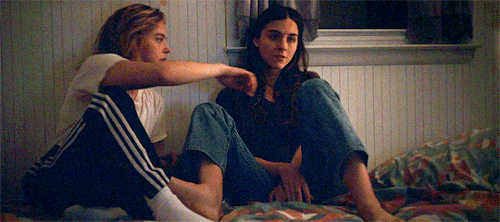
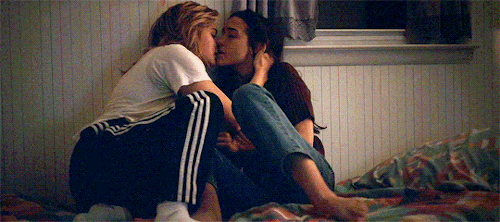
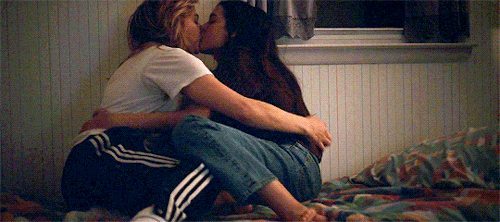
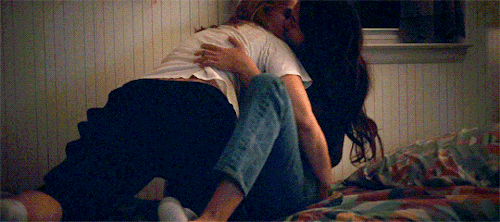
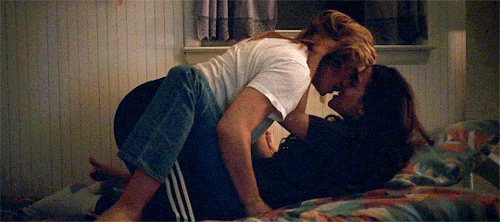

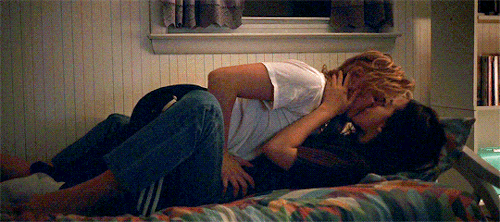
The Miseducation of Cameron Post (2018)
